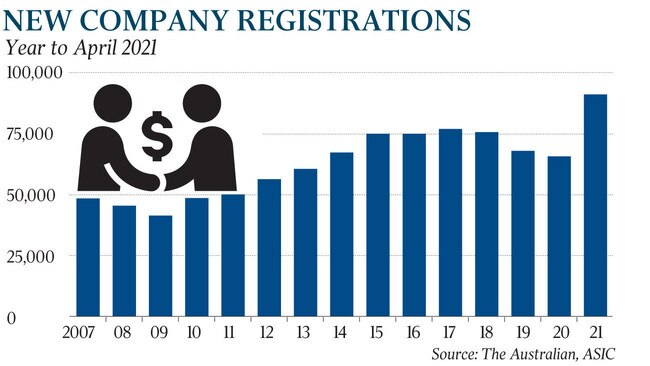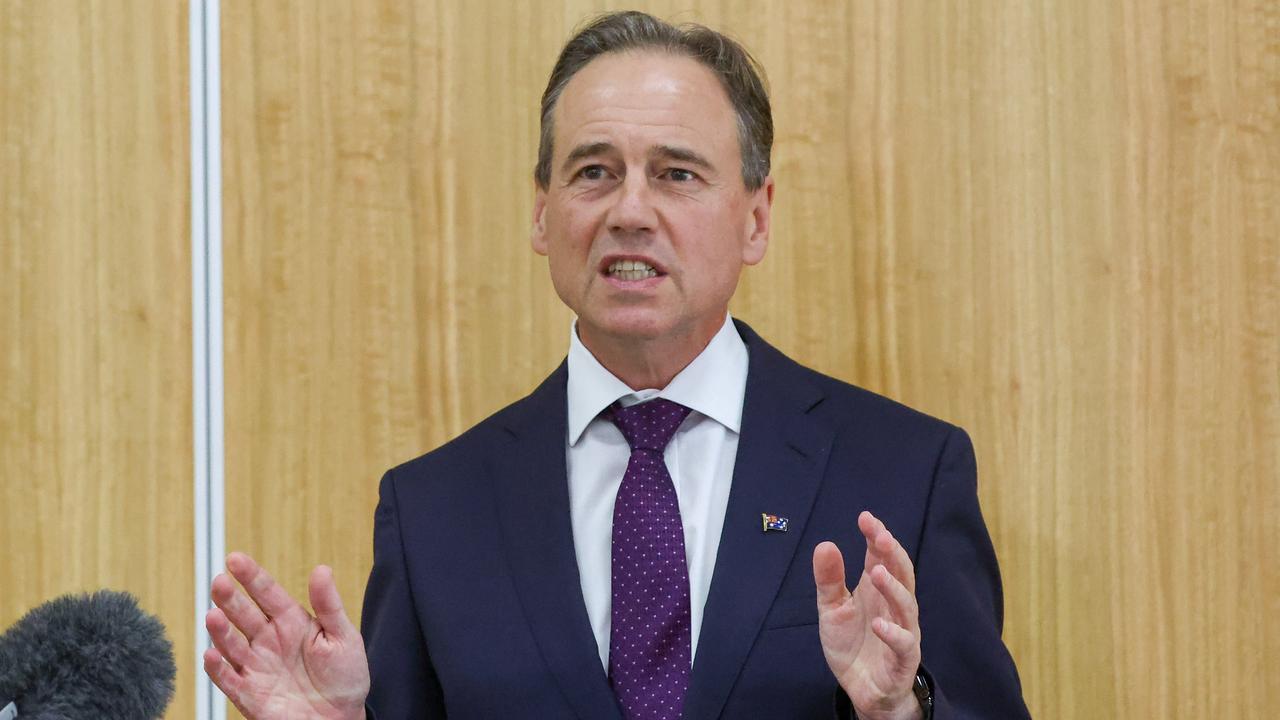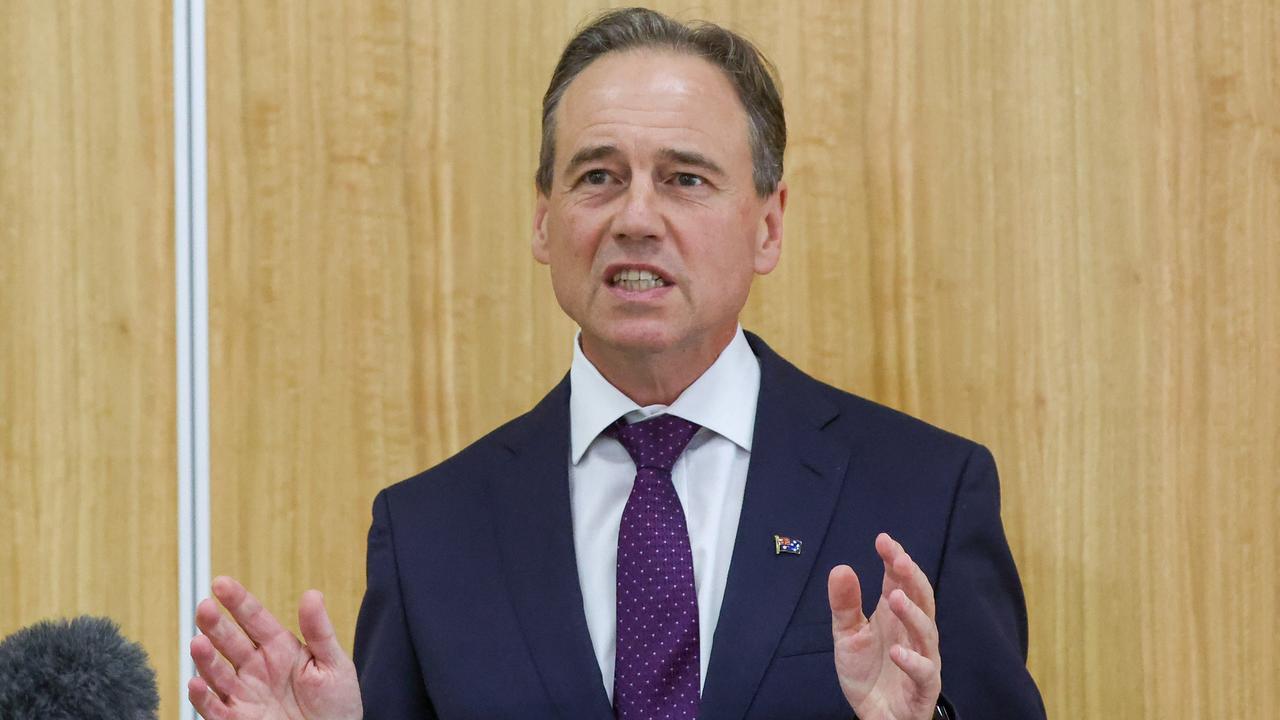Post-coronavirus start-ups catch entrepreneurial bug
An analysis of ASIC data shows new company registrations in the year to April are running at more than 25 per cent above the seven-year average.

The recovery from the COVID-19 recession has sparked a new wave of entrepreneurship, with analysis of ASIC data by The Australian showing new company registrations in the year to April are running at more than 25 per cent above the seven-year average.
A similar picture emerges from the Australian Taxation Office’s ABN database: the number of new business registrations over the first four months of 2021 were about 10 per cent above the level of previous years for the corresponding period.
The analysis comes as the Morrison government this week announced it will commit $1.2bn into transforming the nation into a leading digital economy, and ahead of next week’s federal budget which is expected to contain more measures to help businesses grow and invest.
Corporate Australia has emerged in much better shape than expected from the nation’s first recession in three decades, reducing the scarring effect on the economy that could have sapped the vitality of the recovery.
Overall, the small business sector is in particularly robust good health. Xero’s Small Business Index — which is based on anonymised and aggregated data on sales, jobs, wages and customer payment times from tens of thousands of businesses using its software — has jumped in the past two months to be 20 per cent higher than before the pandemic.
Finance Minister Simon Birmingham told The Australian the rebound in business and consumer confidence was directly linked to the government’s COVID-19 economic support programs.
“Last year, there were fewer business failures, ironically, than there were in 2019,” he said.
“Alongside the positive health outcomes of COVID-19 management, the ability for us to recover and exceed the rest of the world is underpinned by the fact that the rates of business failures in Australia have been minimised because we didn’t have businesses having to pay out large numbers of redundancies.
“JobKeeper prevented them from having to do that. They got relief in relation to their bank repayments because of the deals with the banks. And they got relief in relation to their rental payments because of deals done with the states.”

Senator Birmingham said some sectors and businesses were still doing it tough and “may not come back to how they were before … but other parts are growing much more strongly than previously and, on the whole, have created … net jobs growth”.
Senator Birmingham said every business that became more profitable as the nation’s economic recovery continued would drive stronger revenues and be “another step to fiscal repair”.
The pandemic has also triggered a change in how households and firms behave and spend, many of which may prove long lasting. How entrepreneurs and business owners seize these opportunities in the coming months and years will drive the country’s longer-term prosperity.
Reserve Bank of Australia governor Philip Lowe has long highlighted a lack of “dynamism” in the economy that has sapped investment, and he has called for a revival of “animal spirits” among the business community.
Matthew Duggan, a partner at accounting firm BDO in Sydney, said he was being inundated with calls from potential clients looking for advice on how to set up businesses or register as companies. “You can really see the uplift in activity,” Mr Duggan said, adding that the increased confidence — particularly with the health situation — was clearly evident since the end of 2020.
Clinical scientist Stephanie Mascarenhas was a frontline health worker with NSW Health before quitting to devote herself full-time to developing an app to help Australians — particularly those with chronic conditions — keep track of medications, records and appointments.
The Sydney-based chief executive and co-founder of Handy Health said the timing was “excellent” to start a new business in the digital health sector.
“In the health industry, everybody has jumped onto telehealth, and that has been really successful,” Ms Mascarenhas said.


